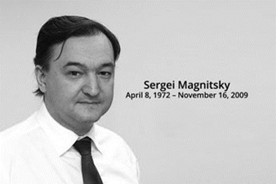 Liberal democracies have not provided an adequate policy response to widespread and systematic state-sanctioned hate directed at many minorities, according to Irwin Cotler, Ahmed Shaheed and Brandon Silver. Rapid implementation of targeted sanctions against individuals inciting hatred and discrimination could possibly prevent further crimes, they write for Project Syndicate:
Liberal democracies have not provided an adequate policy response to widespread and systematic state-sanctioned hate directed at many minorities, according to Irwin Cotler, Ahmed Shaheed and Brandon Silver. Rapid implementation of targeted sanctions against individuals inciting hatred and discrimination could possibly prevent further crimes, they write for Project Syndicate:
[T]argeted sanctions frameworks such as Magnitsky Laws – nowadays the paradigmatic tool to punish human-rights abusers – have never been used expressly to combat incitement to violence and discrimination. This is despite many such frameworks being linked to the relevant international treaties, whether explicitly, such as in the European Union and United Kingdom, or implicitly, like in Canada and the United States. Such sanctions have been a powerful post-facto tool, adding substance to statements condemning discriminatory violence against the vulnerable .. They have been used, for example, in relation to Houthi-controlled security and intelligence agencies’ unjust detention and rape of politically involved women in Yemen, Chechen leaders’ torture and murder of LGBT persons, and the atrocities committed by Myanmar’s military, the Tatmadaw, against the country’s Rohingya Muslim minority.

Credit ESI
But these sanctions, while commendable, deal with the criminal consequences of hate, not its cause, they add. Rather than providing posthumous redress, targeted sanctions could possibly have prevented such crimes. Read the rest.
Irwin Cotler, a former minister of justice, attorney general, and member of Parliament of Canada, is Canada’s Special Envoy on Preserving Holocaust Remembrance and Combatting Antisemitism. Ahmed Shaheed, a former foreign minister of the Maldives, is UN Special Rapporteur on Freedom of Religion or Belief and Deputy Director of the University of Essex Human Rights Centre. Brandon Silver, an international human-rights lawyer, is Director of Policy and Projects and Head of the Global Magnitsky Sanctions Program at the Raoul Wallenberg Centre for Human Rights.







